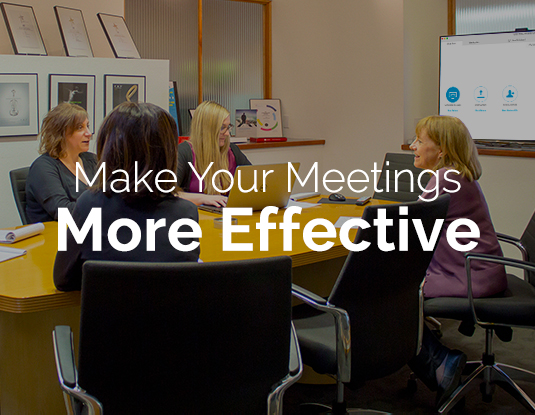If you have an article, marketing tip or thoughts you'd like to share, drop us a line at
deccatalkingpoints@decdesign.com
deccatalkingpoints@decdesign.com
Make Your Meetings More Effective

Few things are as painful as attending a bad meeting. The meeting starts late. The agenda is unclear. The person in charge loses control, or nothing gets accomplished and you waste an hour of your valuable time. By practicing the following tips you can make sure all your own meetings run more smoothly. These strategies, gleaned from conversations with more than 500 chief executives, will work for anyone, regardless of title.
- Set the agenda.
This may seem obvious, but a lot of meetings begin with no clear purpose. The meeting’s agenda can be summarized on a handout, written on a whiteboard, or discussed at the meeting’s outset. Everyone involved should know why they are there and what they hope to accomplish. - Give each attendee a role.
Before a meeting begins, determine the role for each person you invite. Are they in the meeting to receive an assignment? Offer their input? Brainstorm? Make sure to communicate their role with them. The more specific you are, the more you will get out of your meeting’s participants. - Decide how decisions will be made.
Some decisions are made by consensus, some aren’t. One of a meeting leader’s main responsibilities is to get as many opinions as possible on the table. Be clear about when you’re looking for an agreement, a vote, or when you’re merely soliciting input. - Begin and end on time.
Nothing drains the energy from a room like waiting for the person in charge to show up. If you set up a meeting to start at 9am, be present and kick things off at 9am. Everyone’s time is valuable. Colleagues will appreciate it when you respect that and abide by the schedule. - Control the meeting, not the conversation.
Once you outline the agenda and what you wish to accomplish, take a step back and let others share first. If you share your thoughts first, you’re likely going to see a table full of nodding heads. It’s easier to learn all the facts, hear all the opinions, and make good decisions if you allow the attendees to speak their minds first. - Clarify the next steps.
Reserve the final few minutes of your meeting to discuss the action plan. This discussion should include each necessary action, who is responsible for it, and when it should be completed.
Based on How to Run a More Effective Meeting by Adam Bryant.
